Rome (Italy). November 25, 2023 marks the liturgical memorial of Venerable Margherita Occhiena, mother of Don Bosco, better known in the Salesian environment as “Mamma Margherita”.
We publish part of the testimony given by Diego Occhiena, President of the Association Amici Museo Mamma Margherita di Capriglio, on 9 September 2023, as part of the III Seminar to promote the Causes of Beatification and Canonization of the Salesian Family, “In the Circle of the Saints”, entitled “Mamma Margherita and lay holiness”:
In Strenna 2023, the Rector Major deepens the theme of the lay dimension of the Salesian Family. I quote him, ” It is interesting to note that, among the 173 Saints, Blesseds, Venerables, Servants of God of our Family, 25 are lay people who have incarnated the Salesian charism in the family, in the Salesian house, in secular life, in profession, privileged space of Christian witness, and in different social, historical, and cultural contexts… Among these, also the Venerable Mother Margherita Occhiena, maternal and feminine presence at the origins of the charisma.”
Holiness in one’s environment and ordinary life
The fact that Mamma Margherita was sanctified where God called her immediately stands out, in her Piedmontese peasant environment of the late eighteenth and mid-nineteenth centuries, in ordinary life in the midst of the world. One could say that her holiness was that of ‘the next-door saint’, of a woman who, while living among her countrymen, was at the same time a reflection of God’s presence. Don Bosco will explain this way of life with the phrase “Walk with your feet on the ground and with your heart live in heaven.”
This holy woman was able to sanctify her work with the power of prayer and in the works that became prayer. Prayer gave her the strength to do God’s will. It was the most powerful weapon she possessed to transform the work that became prayer. Not simply work, but sanctified work. And she did not lack work, as her biography reminds us. “All the domestic administration weighed on Mother Margherita. She alone took care of the cultivation of the farm and for buying and selling its produce at the various markets. With strong courage, she not only carried out those farm chores, which were usually entrusted to women, but willingly submitted to all the other heavier and more tiring chores proper to men… Then Margherita cut the grass, or plowed the field, and sowed the seed. She mowed the wheat, cut it, formed the sheaves, put them on carts, transported them to the threshing floor, formed the biche, threshed, and put the harvest in the barn”.
For Margherita, peasant life is also a reason for education in the family. She points out to her children the beauty of creation and the power of nature. She stimulates in them thoughts of gratitude towards God the Father, the invisible creator of the earth, a visible creation. Still quoting her biography: “With the spectacles of nature, she also continually revived in them the memory of their Creator.” She used the starry skies, flowery meadows, abundant harvests, rosy auroras, and fiery sunsets, but also violent storms and frightful thunders of hail and ice, snow and fire. An environmental pedagogy that, respectful of Creation, the common heritage of humanity, seems to anticipate the attentions and cries of alarm that today come from every part of the planet.
There is an incipit of Pope Francis’ encyclical letter Laudato si’: “We are not God. The earth precedes us and has been given to us… ‘To cultivate’ means to plow or to work the ground, ‘to guard’ means to protect, to care for, to preserve, to conserve, to watch over. This implies a relationship of responsible reciprocity between human beings and nature. Every community can take from the goodness of the earth what it needs for its survival, but it also has the duty to protect it and ensure the continuity of its fertility for future generations”.
The lay faithful are called by God and sent into the world from within the world. The Second Vatican Council affirms: “Here they are called by God in the century, that is, they are involved in all individual occupations and affairs of the world and in the ordinary conditions of family or social life, of which their existence is as if woven”. Consequently, the world is for the laity a place of call and mission. Addressing young people, Pope Francis reminded them “that the lay vocation is first and foremost charity in the family… is a concrete commitment starting from faith to build a new society”.
In the Christifidelis laici, the Post-Synodal Apostolic Exhortation signed by Saint John Paul II, it is said for the laity to respond to this vocation “they must look to the activities of daily life as an occasion of union with God and of the fulfilment of His will, and also of service to others, bringing them to communion with God in Christ”.
And this is precisely what shines in Mamma Margherita’s life: motherhood and fatherhood, the family, the education of children, work, daily commitments, illness, everything became for her an occasion and a means of union with God and of service to others.


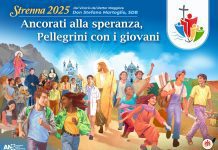

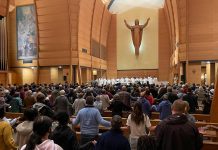

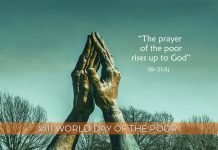
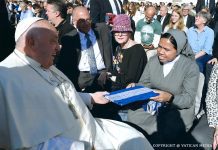
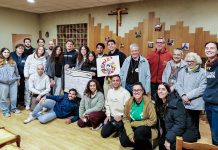
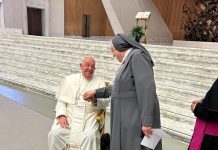
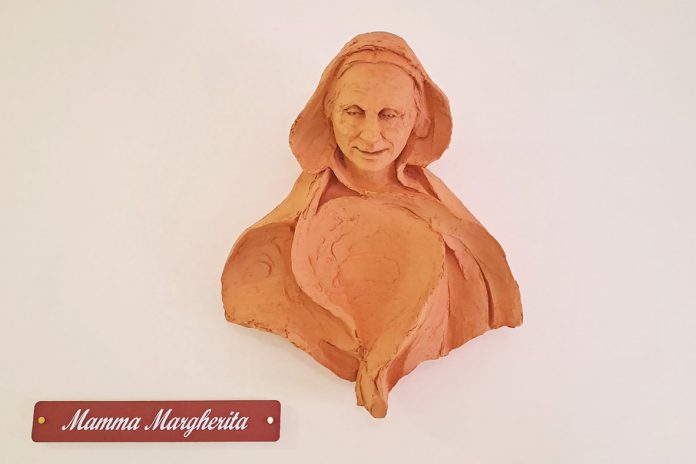










This is the Saint we need today! Let us not be afraid to present her to all especally lay women.
Qué maravilla dd reflexión!!!
Doy gracias a, Dios por suscitar en esta mujer sencilla, llena de fe y de una sabiduría excepcional, aun dentro del analfabetismo, una gran capacidad de trascender y suscitar en la familia, especialmente a D. Bosco, su gran vocación. Como leí ayer cofundadora de la Familia
Salesiana. Gracias.